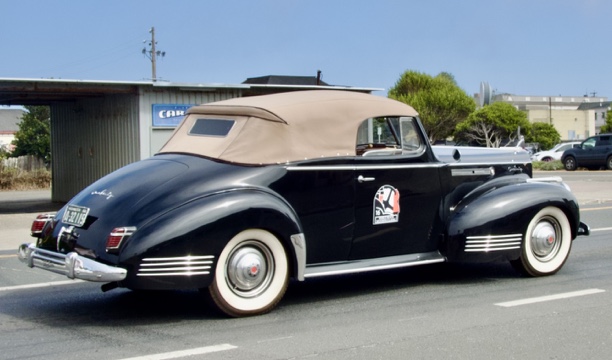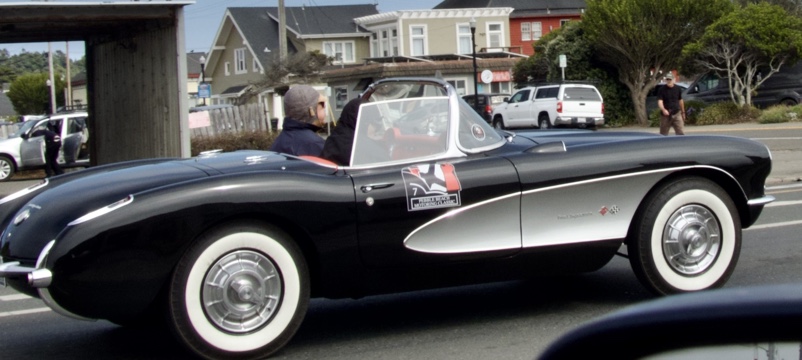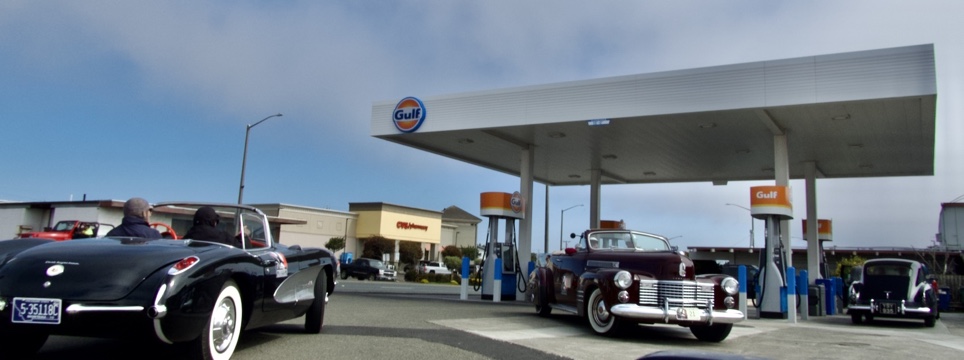Thar she blows! What is that sea monster coming out on the walls of North Coast Brewing?
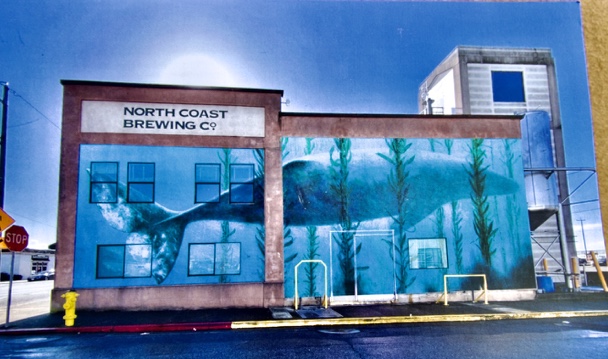
Fort Bragg’s largest mural ever has begun to emerge from the walls from the north wall of North Coast Brewing.
It’s a bird, it’s a plane, no it’s a nearly 57-foot-long whale.
Sunday work started on a whale depicted swimming through the kelp forest. It’s really, really big, bigger than a life-sized gray whale, which generally tops out between 40-50 feet. This one will likely be over 50 feet.
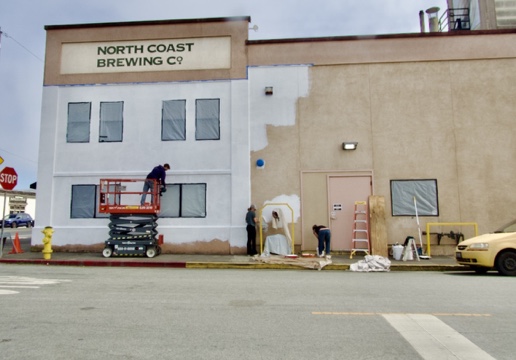
The mural is based on a painting by Larry Foster, who has written books about whales that feature his many paintings of the shore-migrating leviathan.
The art mural is being created based on one of Foster’s paintings. The artist is Marta Alonso Canillar of Willits. Marta moved from Spain to the United States when she was 21 and eventually found her way to Mendocino in 2001. Like many artists, she feels her artistic journey is intrinsically tied to her journey in life. Two other murals painted by her are within a stone’s throw of her soon to emerge one. The towering “Queen Bee” mural across State Route 1 and the mural on the side of the old working railroad shed at the intersection of the Skunk Train tracks and the highway. She was invited to do the painting based on her previous work. Read about Marta and her Art here.
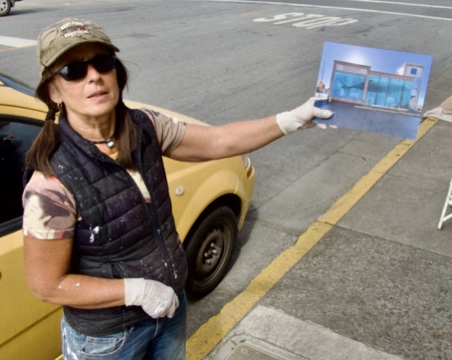
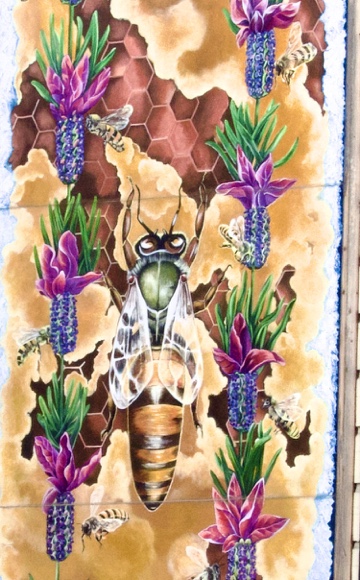
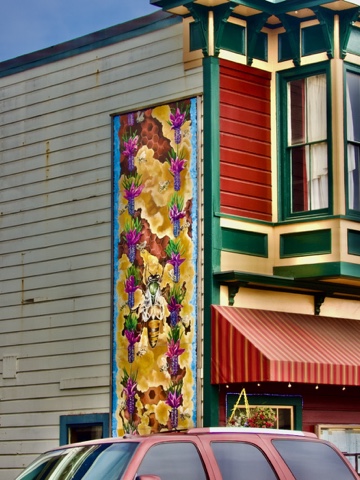
Foster is 92 now and has spent his entire working life bringing whales to life. One of his books, The Art of Discovering Whales is in the window of The Bookstore on Monday, just a few blocks from where the mural is emerging, chronicles artist Larry Foster’s lifelong commitment has been to study and accurately depict the true anatomical shapes of the Cetacea—whales, dolphins, and porpoises.
The full-color book showcases the detailed artworks Foster created during his fifty-plus years of research and discovery. His amazing paintings, drawings, and life-size sculptures are said to bring to life mammals who are literally our cousins genetically.
Foster disliked classic portrayals of whales, usually presented from a whaling perspective.. Read how Larry has redefined whale art across the world.
From his book’s intro: “In The Art of Discovering Whales, Larry describes his decades-long journey of devotion to showing whale lovers everywhere the true body shapes of whales. His goal: to debunk the centuries-old myths that presented whales as grotesque, blimp-like, dangerous animals, and depict them as the graceful, streamlined marine mammals that they really are.”
The mural now emerging wistfully depicts a gray whale gliding through the kelp forest. The kelp was added in for the mural. Both famous giants, the kelp and the whales, on our coast are having rough times. The dramatic decline of the kelp forest, attributed to the starfish die-off, actually changed the habits of the gray whales.
They once were much more common right off the coast, diving down through the 100-foot-tall kelp and grabbing mouthfuls of mud. The mud was full of tiny crustaceans that the whales would filter out with their baleen, spitting the mud back out. All of this feeding enriched that ecosystem as did whale poop. The kelp forest dieoff has changed this, and the whales have moved their migratory route further offshore.
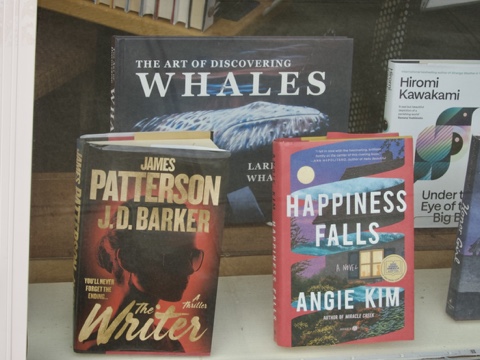
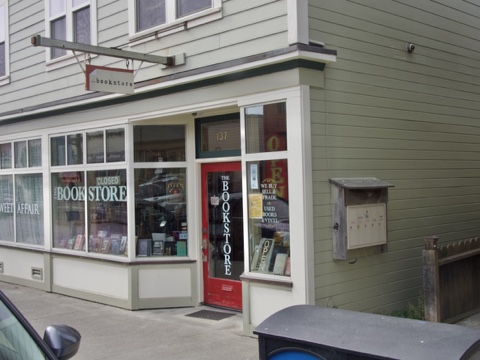
Gray whales were hunted to extinction in the Atlantic Ocean by men in wooden ships. Gray whales were easy to find as they followed a predictable route, something other great whales do not do.
The gray whales in the Pacific Ocean were once hunted close to extinction. There were separate populations in Asia and North America, both of which went to the Arctic Ocean every year to fatten up before going south to breeding grounds, which are in Baja, part of Mexico. The Nations of Mexico, the United States and Canada passed laws collectively that saved the gray whales and they have made a full comeback, to more than 16,000 individuals in 2025.
However, since 2019 there has been a decline, with 2025 reported as one of the worst years with the fewest calves in decades. It’s unknown if the decline of the kelp forest has any relationship to this.
The decline has taken gray whale numbers to their lowest numbers since the 1970s. Read about that issue here.
Kelp forests suffered their worst declines off the Sonoma and Mendocino Coast.
A subgroup of gray whales, called the Pacific Feeding Group numbered at 212 whales in 2023. Those whales do not go to the Arctic Ocean, but spends their time foraging from Marin County to British Columbia. This unique group may be suffering more from local changes to the food supply than the others, and a 2025 scientific study found they had become smaller and more emaciated in recent years than their year-round cousins.
This video. shows the relationship of the gray whales to the kelp forest.
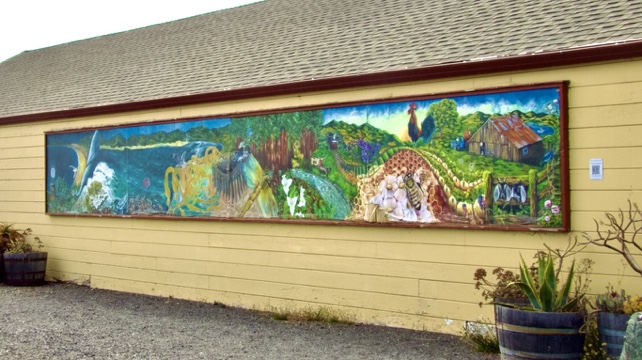
The big gray whale on the north side of North Coast Brewery doesnt yet have a pet name nor a gender reveal. The creature will continue to come forth daily and should be complete in approximately two months! We can’t wait to see it and will be watching this one emerge.

Mendocinocoastnews staff was dragged out of sickbay with the news the mural had started. Any grumpy went away after meeting Marta and then seeing a long line of antique cars of the highest value rolling through town. They started in Seattle, making the drive to the Pebble Beach Concours, perhaps America’s finest annual classic auto event. The Concors is for the most uncommon and elegant of great cars, such as Packards, Pierce Arrow, Rolls Rocye and the fabulous 1941 Cadillac convertible we caught gassing up.
